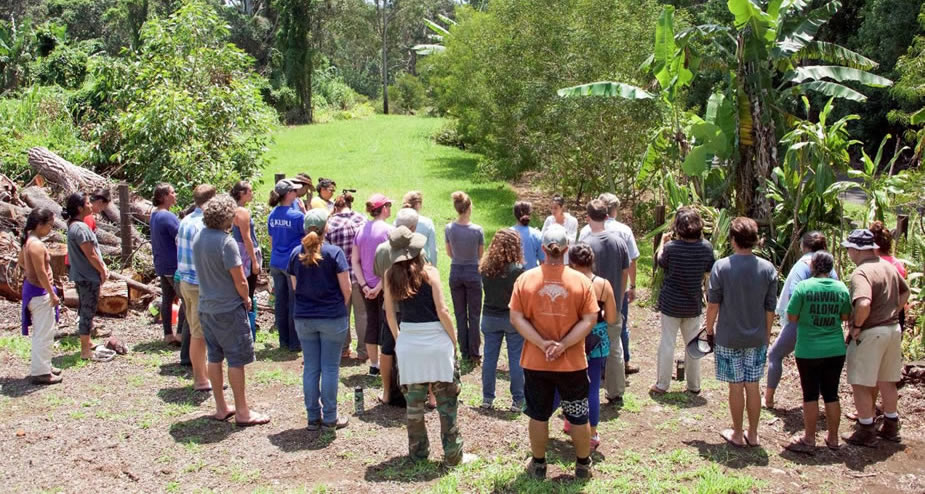MANAGER CLIMATE CORPS (MCC)
MCC Tagline: “Collaboration across Worldviews”
“Information, in itself, is not knowledge, nor do we become any more knowledgeable through its accumulation. Our knowledgeability consists, rather, in the capacity to situate such information, and understand its meaning within the context of direct perceptual engagements with our environments.” Ingold 2011, p. 21
Mission
The PI-CASC mission is to deliver science that helps fish, wildlife, water, land, and people adapt to a changing climate. The Manager Climate Corps (MCC) program is a practitioner-driven graduate research program that accomplishes this mission through the process of knowledge co-production (collaborative research). Through this collaborative process we work to increasingly “get to know our neighbors” by uniting natural and cultural resource stewards with researchers as co-leads in every stage of the research pathway; from the development of the research question, to the methods and analysis, and ultimately the utilization of research output. In the process, graduate students develop collaborative leadership skills within each research team. In its 5th cohort of graduate students and hosted by the University of Hawaiʻi at Hilo, the MCC builds adaptive capacity locally by identifying long-term professional networks and expanding them through manager-driven research projects.
For more details of the MCC program and process, please check out our:
MCC FOUNDATIONAL ELEMENTS
- Returning to notions of “community” that are guided by the strength of our more-than-human and human relationships (Abram 1996)
- Recognizing and engaging diverse knowledge forms
- Supporting trust by locating and building upon long-term, place-based relationships (knowledge networks)
- Employing the process of knowledge co-production (community-driven research)
Goal & Objectives
Our goal is to support long-term, place-based relationships (e.g., relationality; Tynan 2021) and practitioner-driven research projects by uniting local management and research networks, while training graduate students in manager-driven research through the process of knowledge co-production (collaborative research). Throughout this website, the term “manager” includes placed-based natural or cultural resource managers, community leaders, policy professionals, and cultural practitioners.
OBJECTIVES
- Identify existing networks of natural and cultural resource managers, policy professionals, community leaders, and other on-the-ground practitioners (henceforth referred to collectively as “managers”) on Hawaiʻi Island.
- Support and expand these local knowledge networks by directly and iteratively connecting managers with research networks in social, biological and physical sciences.
- Sustain network engagement through collaborative networking opportunities and practitioner-driven research projects that offer immediately useful products to local natural resource managers and communities through the process of knowledge co-production.
DEFINING KNOWLEDGE CO-PRODUCTION
As knowledge co-production becomes increasingly familiar across disciplines and professions, definitions are key to illuminating specific approaches to collaborative research amid the spectrum of actionable science pathways. We share this suite of relevant definitions within our programming:
Abram D (1996) The spell of the sensuous: language and perception in a more than human world. Random House, Toronto
Bamzai-Dodson A, Cravens AE, Wade A, McPherson RA (2021) Engaging with stakeholders to produce actionable science: a framework and guidance. Weather, Climate, and Society online. https://doi.org/10.1175/WCAS-D-21-0046.1
Ingold T (2011) The Perception of the Environment: essays on livelihood, dwelling and skill, 2nd edn. Routledge, London.
Meadow AM, Ferguson DB, Guido Z, Horangic A, Owen G, Wall T (2015) Moving toward the deliberate coproduction of climate science knowledge. Weather, Climate, and Society 7:179-191. https://doi.org/10.1175/WCAS-D-14-00050.1
Norström AV, Cvitanovic C, Löf MF et al. (2020) Principles for knowledge co-production in sustainability research. Nat Sustain 3, 182–190. https://doi.org/10.1038/s41893-019-0448-2
Tynan L (2021) What is relationality? Indigenous knowledges, practices and responsibilities with kin. Cultural Geographies. 28(4):597-610. doi:10.1177/14744740211029287
MORE MCC
QUICK LINKS
CONTACT
Scott Laursen
Climate Adaptation Extension Specialist
slaursen@hawaii.edu



